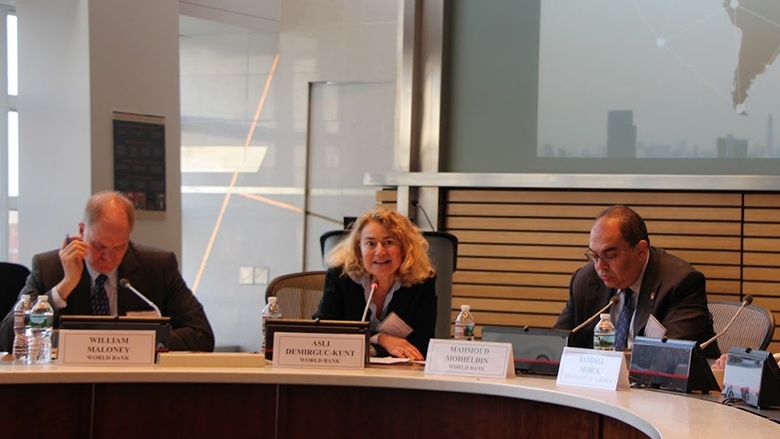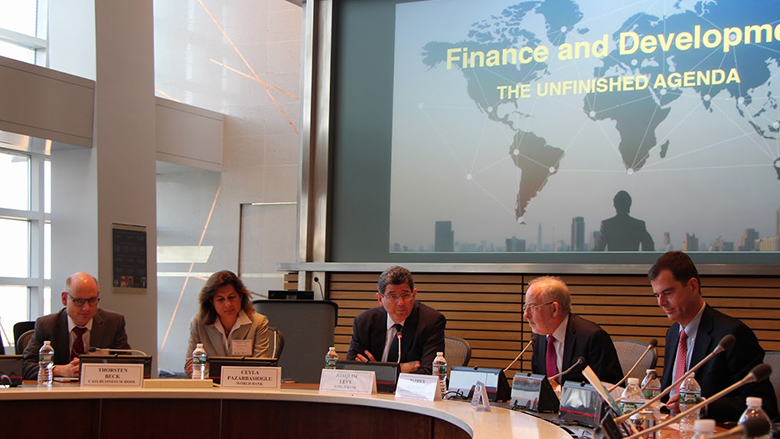Since the crisis of 2008, a shortage of finance has shut many eligible borrowers out of credit markets in developing countries, limiting job-creating investment in small enterprises and cutting off resources for housing and education. According to the latest Global Financial Development Report, small firms saw a sharp and lasting decline in access to long-term credit after the crisis. And according to the World Bank’s latest forecast, global economic prospects continue to be shaky with projected global growth of 2.4 percent in 2016.
In the midst of these global headwinds, the World Bank convened a group of renowned financial sector policy makers, researchers, and practitioners earlier this month to lay out an agenda for the next generation of financial sector reforms. Experts from key institutions such as the Federal Reserve Board and the IMF discussed new research and data on policies that could make poverty-alleviating financial resources available to those in the bottom 40 percent.
Some of the most promising research highlighted policies that could open financial and labor markets to women. According to data from the Global Findex, women significantly lag behind men in financial account ownership. But measures to expand access can pay dividends. For example, women-headed households in Nepal were able to significantly increase spending on education and food after receiving a savings account.


